#sustainable clothing manufacturers india
Text
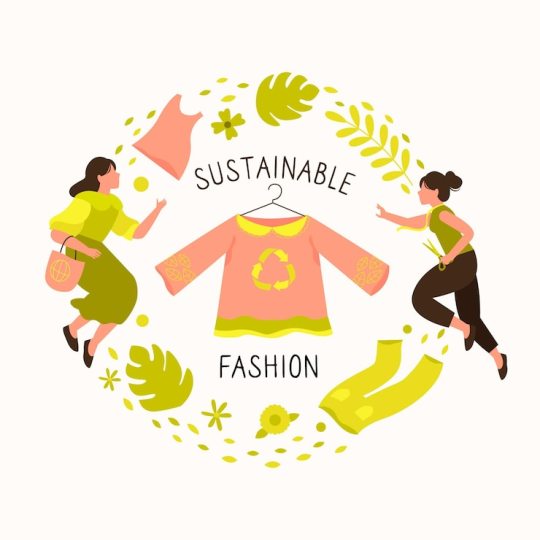
Pearl Global: Sustainable Clothing Manufacturing in India
Discover Pearl Global, synonymous with sustainable clothing manufacturing in India. At Pearl Global, we strive for a better world and a thriving environment. As sustainable clothing manufacturers in India and across the globe, we believe in the long-term preservation of our resources. Hence, we take it upon ourselves to create a circular economy by eliminating waste and utilizing resources optimally for the benefit of the world and society. Make the eco-friendly choice with Pearl Global, a leader in sustainable clothing manufacturing. Discover our commitment to eco-conscious fashion solutions.
#sustainable clothing manufacturers india#clothing supplier#garment supplier#cloth manufacturing company
0 notes
Text
Sustainable Clothing Manufacturers | Wings2Fashion India
Wings2Fashion is a garment exporter based in Faridabad, Haryana, India. Wings2Fashion is a leading sustainable clothing manufacturer in India. They use organic and recycled fabrics, and they have a commitment to fair trade practices. When choosing a sustainable clothing manufacturer, it is important to consider their environmental and social practices. You should look for manufacturers who use organic or recycled fabrics, who have fair trade practices, and who are committed to reducing their environmental impact.
Visit : https://www.wings2fashion.com/services/sustainable-clothing-manufacturers/

#Sustainable Clothing Manufacturers India#Sustainable Clothing Supplier India#Sustainable Apparel Manufacturers India
0 notes
Link
0 notes
Text
4 Reasons Why Sustainable Fashion Matters
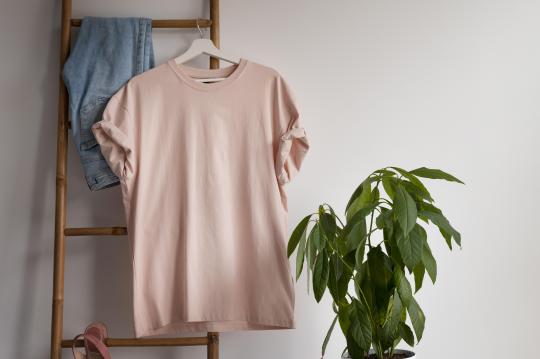
Implementing sustainable fashion industry practices is a growing concern as assessed by the UN’s COP26 summit. We still have a long way to curb environmental encroachment in the name of unsustainable fashion practices.
Thankfully, given the growing awareness, many people are becoming conscious about sustainable practices in the fashion industry and why these are a top priority.
Popularize eco-friendly fashion
As eco-friendly fashion becomes the primary alternative, slow fashion is gaining precedence. Slow fashion allows more designs to reach the market and become exclusively available. The pre-order process ensures sustainable resources are used to produce high-quality pieces.
Businesses normalize sustainable clothing production and sourcing methods as diverse eco-friendly fashion becomes the norm.
Reduce poaching
Unfortunately, poaching is still very much in play across the globe. Besides the legally slaughtered animals, there is a threat to exotic and near-extinct wildlife due to the fashion industry.
Close to extinction species like the Sumatran Tiger, American Alligator, and many others still suffer from poaching activities. The dwindling numbers of these animals is a wake-up call for the fashion aficionados, who need to take notice and raise their voice against this cruelty.
Rather than validating original leather, fur, and wool, it is much more beneficial for the fauna to transition to human-made fibers, including bamboo plant fibers, recycled materials, and other viable alternatives.
Subsequent waste reduction
As sustainable clothing brands gain prominence, so is the upward trend in waste reduction. It’s no secret that sustainable textile manufacturing units rely on eco-friendly, recycled resources to do their bidding.
As sustainable clothing lasts longer due to a lack of chemical processing and lasting fibers, you must buy less. Resultantly, the number of clothes produced and trashed every year will also reduce.
Reduce environmental harm
Fast fashion has left the planet high-and-dry with a massive carbon footprint. Solid landfill, water consumption, toxic waste, pesticides, and insecticides used from unsustainable fiber production- all of it contribute to planetary harm.
These practices are also harmful to the workers’ health and well-being in these industries. Sustainable fashion is synonymous with fair trade and humanely safe industrial practices.
Promote fair trade
The fast fashion industry can mass-produce and keep prices low. All this is possible, since most of the workforce is based in third-world countries, with cheap labor availability. Child labor, which is illegal and cheap in developing nations, is synonymous with fast fashion.
Sustainable fashion clothing
By consuming sustainable clothing, you help organic fashion brands stay in business. In turn, they can employ workers in safe and healthy working conditions. Sustainable brands are also certified ethical and do not employ children.
#sustainable fashion#sustainable fabrics#sustainable clothing#clothing manufacturers#clothing manufacturers in india
2 notes
·
View notes
Text
Sustainable Cotton Fabrics in India: Sri Shakthi Tex, Your Eco-Friendly Partner
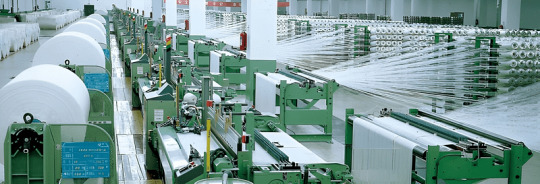
Looking for top-quality, sustainable cotton fabrics in India? Look no further than Sri Shakthi Tex, a leading cotton fabric manufacturer dedicated to ethical and environmentally responsible practices. Founded in 1994, we offer a wide range of high-quality cotton fabrics wholesale, perfect for businesses seeking eco-friendly solutions.
Why Choose Sri Shakthi Tex?
Sustainable Practices: We source our cotton from responsible farms and use eco-friendly dyes and chemicals, minimizing our environmental impact.
Diverse Selection: From plain fabric and shirting fabric to duck canvas and stain fabrics, we have the perfect material for your project.
Superior Quality: We are committed to providing the best possible fabrics at competitive rates, never compromising on quality.
Eco-Friendly Products: Beyond fabrics, we offer cotton bag fabric for sustainable packaging and white dhoti made with ethical practices.
Reliable Supplier: With over 28 years of experience, we are a trusted partner for businesses across India.
More Than Just Fabric:
At Sri Shakthi Tex, we believe in responsible textile production. We are committed to:
Ethical Labor Practices: We ensure fair wages and safe working conditions for all our employees.
Community Development: We actively support our local community through various initiatives.
Reducing Waste: We minimize waste throughout our production process and promote sustainable practices.
Join the Sustainable Movement:
By choosing Sri Shakthi Tex, you are not just buying high-quality cotton fabrics, you are supporting a company that is committed to a sustainable future. Contact us today to learn more about our products and services and how we can help you achieve your sustainability goals.
#handloommagic#srishakthitex#sri shakthi tex#sustainable cotton fabrics india#cotton fabric manufacturer india#high-quality cotton fabrics wholesale#eco-friendly textile supplier india#white dhoti manufacturer#organic cotton india#ethical textile production#sustainable fashion india#eco-friendly clothing#responsible sourcing#fair trade cotton#GOTS certified fabric#natural dyes#ethical labor practices
0 notes
Text
0 notes
Text
Discover the sustainable style revolution with organic denim! Explore how environmentally conscious practices are reshaping the fashion industry, from eco-friendly production methods to ethical sourcing. Embrace the future of fashion with organic denim that not only looks good but also feels good, making a positive impact on both your wardrobe and the planet. Join the movement towards a more sustainable and stylish tomorrow!
#organic clothing manufacturers in india#private label clothing manufacturer in india#organic clothing supplier#sustainable fabric suppliers india#100% cotton denim manufacturer
0 notes
Text
Unveiling the World of Indian Clothing Manufacturers
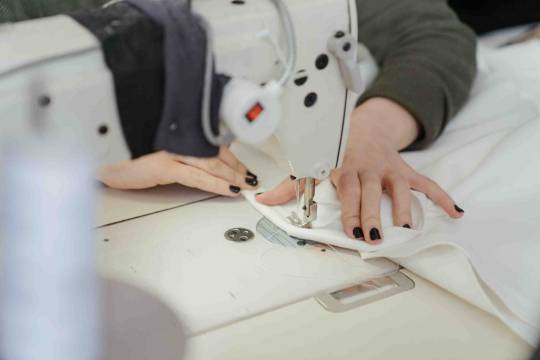
Introduction
In the sprawling tapestry of the global fashion industry, clothing manufacturers are the unsung heroes, weaving together threads of creativity and functionality. Among these artisans, India stands tall as a formidable player, shaping trends and setting benchmarks in the realm of garment production. This blog is a window into the vibrant world of clothing manufacturers, with a special focus on the dynamic landscape of Clothing manufacturers in India.
From the bustling streets of Delhi to the picturesque workshops of Jaipur, India's legacy in clothing manufacturing is a tale of innovation, tradition, and unyielding craftsmanship. Here, the term "apparel manufacturers" encompasses a mosaic of enterprises, ranging from small-scale boutiques to large-scale factories, each contributing its unique essence to the global fashion canvas.
As we journey deeper, we'll uncover distinct categories within this domain. Sustainable clothing manufacturers emerge as torchbearers of conscious production, redefining industry norms and championing eco-friendly practices. Denim manufacturers, on the other hand, have mastered the art of crafting that quintessential wardrobe staple, denim, in a multitude of styles and washes, firmly establishing India as a denim powerhouse.
Sportswear manufacturers, in their quest for marrying form and function, have propelled India into the forefront of athletic apparel production. Their commitment to performance-driven design resonates with athletes and fitness enthusiasts worldwide.
Through these chapters, we aim to shed light on the multifaceted world of Indian clothing manufacturers, offering insights into their methods, innovations, and contributions to the global fashion tapestry. Join us on this expedition, as we unravel the threads that bind India to the heart of the clothing manufacturing industry.
The Landscape of Clothing Manufacturers in India
India, a vibrant tapestry of culture and commerce, stands as a behemoth in the global clothing manufacturing industry. The landscape of clothing manufacturers in India is a diverse and dynamic realm, encompassing a wide spectrum of enterprises. From bustling urban factories to artisanal workshops nestled in idyllic settings, India's prowess in clothing manufacturing is a testament to its rich heritage and relentless innovation.
Clothing manufacturers in India play a pivotal role in the global fashion ecosystem. With a skilled labor force and an intricate network of suppliers, India has emerged as a preferred destination for numerous fashion brands worldwide. The country's contribution to the global supply chain is substantial, solidifying its position as a key player in the industry.
Within this expansive landscape, one encounters a multitude of apparel manufacturers. These enterprises range from small-scale boutique operations to large-scale production units, each contributing its unique essence to the global fashion tapestry. They are adept at working with various fabrics, styles, and designs, showcasing a versatility that resonates with consumers worldwide.
In recent years, a notable shift has been observed towards sustainable clothing manufacturers. These pioneers prioritize eco-friendly materials, ethical production processes, and fair labor practices. Brands that champion sustainability have gained traction not only for their environmental consciousness but also for their commitment to quality and innovation.
Furthermore, India is a significant player in the global denim market, boasting a multitude of denim manufacturers. These artisans have perfected the craft of producing this iconic fabric in a plethora of styles and washes. With their expertise in denim production, Indian manufacturers have carved a niche for themselves on the global stage.
In the realm of sportswear, Indian sportswear manufacturers have witnessed exponential growth. Fueled by a surge in fitness consciousness and athleisure trends, these manufacturers have honed their expertise in producing high-performance activewear. Their commitment to blending fashion with function has earned them a coveted spot in the athletic apparel market.
The landscape of clothing manufacturers in India is a testament to the country's legacy of craftsmanship and innovation. From apparel to sustainable fashion, denim to sportswear, Indian manufacturers continue to shape global fashion trends. Their ability to blend tradition with innovation ensures that India remains a powerhouse in the world of clothing manufacturing.
Types of Clothing Manufacturers in India
In India, the tapestry of clothing manufacturers is woven with diverse threads, encompassing a wide array of enterprises that contribute significantly to the global fashion industry. These clothing manufacturers in India can be broadly categorized into distinct types, each exemplifying unique strengths and specialties.
Apparel manufacturers form the cornerstone of this vibrant industry. Ranging from small-scale workshops to large-scale production units, they exhibit a remarkable proficiency in transforming fabrics into garments. India's prowess in apparel manufacturing has made it a preferred hub for fashion brands worldwide. These manufacturers display unparalleled versatility in working with an extensive range of materials, styles, and designs, ensuring that they cater to the ever-evolving demands of the global market.
In recent years, the emergence of sustainable clothing manufacturers has marked a significant shift in the industry. Fueled by a growing awareness of environmental issues, these manufacturers prioritize eco-friendly materials, ethical production practices, and fair labor conditions. Their commitment to sustainability not only addresses crucial environmental concerns but also sets a new standard for quality and ethics in the fashion industry. India has swiftly become a noteworthy player in this arena, with several manufacturers leading the way in sustainable fashion production.
In the realm of specialized fabric, denim manufacturers have carved out a niche for themselves. India's denim manufacturing sector is a powerhouse, producing a wide range of denim products that cater to diverse consumer preferences. With their expertise in denim production, Indian manufacturers have garnered international recognition for their quality, innovation, and design. They continue to play a pivotal role in shaping denim trends worldwide.
Moreover, the surge in fitness consciousness and athleisure trends has propelled the growth of sportswear manufacturers in India. These manufacturers focus on producing high-performance activewear that seamlessly marries fashion with function. With their dedication to crafting apparel that empowers athletes and fitness enthusiasts, they have established themselves as key players in the global athletic apparel market.
In essence, the diverse landscape of clothing manufacturers in India showcases the industry's adaptability and innovation. From apparel to sustainable fashion, denim to sportswear, each type of manufacturer contributes its unique expertise, solidifying India's position as a dynamic force in the global fashion arena.
Challenges and Opportunities
For clothing manufacturers in India, navigating through the dynamic landscape of the fashion industry comes with its own set of challenges and opportunities. One of the foremost challenges lies in the competitive nature of the market. With a multitude of players, including apparel, sustainable, denim, and sportswear manufacturers, the industry is fiercely competitive. This competition spurs innovation and pushes manufacturers to continuously refine their processes and products to stay ahead.
Moreover, regulatory compliance and evolving industry standards present a persistent challenge. Sustainable clothing manufacturers particularly face the complex task of adhering to stringent environmental and ethical standards. Balancing the demands of sustainable practices with the need for profitability can be a delicate and intricate process. Similarly, denim manufacturers and sportswear manufacturers contend with quality standards and performance expectations, necessitating ongoing investments in technology and processes.
Sustainability, though a cornerstone of progress, also poses a challenge in terms of initial investments. Manufacturers looking to adopt sustainable practices may face higher initial costs for eco-friendly materials and technologies. However, the long-term benefits, including brand loyalty and a reduced environmental footprint, make it a vital endeavour.
On the flip side, within these challenges lie immense opportunities for growth and innovation. The adoption of technology, particularly in areas like automation and data analytics, can significantly enhance the efficiency and productivity of clothing manufacturers in India. Embracing Industry 4.0 practices can streamline operations, reduce costs, and improve overall competitiveness.
Collaborations and partnerships, both domestically and internationally, present another avenue for growth. Establishing strategic alliances with suppliers, retailers, and even other manufacturers can lead to synergies that drive innovation and market expansion. For instance, sustainable clothing manufacturers may forge partnerships with eco-friendly material suppliers to create a closed-loop supply chain.
In conclusion, the world of clothing manufacturers in India is a dynamic arena, marked by both challenges and opportunities. Navigating through competition, regulatory compliance, and sustainability concerns requires strategic planning and adaptability. However, by embracing technological advancements and forging strategic partnerships, manufacturers can not only overcome these challenges but also thrive and lead in the ever-evolving fashion industry.
Future Trends and Projections
The future of clothing manufacturers in India promises to be marked by dynamic shifts and transformative trends. Embracing technology will be a pivotal aspect, as manufacturers, including apparel, sustainable, denim, and sportswear manufacturers, increasingly adopt Industry 4.0 practices. Automation, data analytics, and artificial intelligence are poised to revolutionize production processes, enhancing efficiency, reducing lead times, and minimizing errors. This technological leap is set to position India as a global leader in advanced manufacturing.
Sustainability will continue to be a driving force in the industry's trajectory. Sustainable clothing manufacturers are expected to spearhead innovations in eco-friendly materials, circular fashion models, and waste reduction techniques. The adoption of closed-loop systems and the incorporation of recycled materials will not only reduce environmental impact but also resonate strongly with conscious consumers.
Moreover, customization and personalization are anticipated to take center stage. With advancements in technology, manufacturers will have the capability to offer bespoke solutions to consumers, allowing for unique designs and tailored fits. This trend aligns with the growing demand for individuality and self-expression in fashion.
In response to the evolving market dynamics, flexibility and agility in production processes will become paramount. Manufacturers will need to pivot quickly to meet changing consumer preferences and market demands. This will require streamlined supply chains, responsive production schedules, and adaptable manufacturing systems.
Additionally, the convergence of fashion and technology will lead to the rise of smart textiles and wearable technology. From fitness trackers embedded in sportswear to temperature-regulating fabrics, these innovations will revolutionize not only the functionality of clothing but also the consumer experience.
As a whole, the future of clothing manufacturing in India appears promising and poised for growth. By capitalizing on technological advancements, championing sustainability, and embracing consumer-centric trends, Indian clothing manufacturers are well-positioned to not only meet the demands of the global market but also drive innovation and set new standards in the fashion industry. This dynamic landscape presents exciting opportunities for manufacturers to redefine the future of fashion production.
Conclusion
As we draw the curtain on our exploration of Indian clothing manufacturers, it's evident that their influence extends far beyond borders. From the bustling production floors to the design studios, these manufacturers exemplify excellence in craftsmanship and innovation. As the industry continues to evolve, we can only anticipate greater strides in quality, sustainability, and creativity from these formidable players.
#clothing manufacturers#apparel manufacturers#Sportswear manufacturers#Denim manufacturers#sustainable clothing manufacturers#clothing manufacturers in India
0 notes
Text
Fabric Manufacturers in India | Welspun India
Discover how Welspun India is leading the way in sustainable textile production through their sourcing of ethically and environmentally friendly cotton. Welspun India is paving the way for more environmentally conscious and socially responsible fabric manufacturers in India.
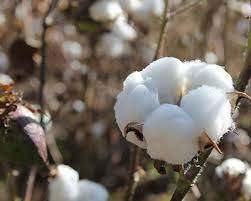
0 notes
Text
The Benefits of Choosing American-made Clothing

Introduction
If you want to buy American-made clothing, it’s important to know why. There are many reasons why buying American is beneficial for the country, its economy, and its workers. In this article, we’ll cover some of the best reasons why Americans should choose American-made clothing when they shop for clothes.
Value of Fashion for Sportswear Manufacturers and Denim Manufacturers
American clothing manufacturers are well-known for their high-quality products and attention to detail. Two specific areas where fashion plays a crucial role for American clothing manufacturers are sportswear and denim manufacturing.
For sportswear manufacturers, fashion is a critical element in their product development. Athletic apparel must be both functional and fashionable, allowing athletes to perform at their best while still feeling confident and comfortable. Sportswear manufacturers must stay up-to-date with current fashion trends to appeal to customers, but they also need to prioritize functionality and performance.
Athletic apparel has evolved significantly over the years, and fashion has played a significant role in this transformation. Sportswear manufacturers are now using a wide variety of materials and technologies to produce athletic wear that meets the needs of athletes of all levels. Performance-enhancing materials such as moisture-wicking fabrics and compression wear have become increasingly popular in sportswear manufacturing, allowing athletes to stay cool and dry during even the most intense workouts.
The fashion trends for sportswear have also changed over time. In the past, athletic wear was primarily designed for functionality, with little consideration given to fashion. However, today, sportswear is a fashion statement as much as it is functional. Manufacturers now incorporate trendy designs, colors, and patterns into their sportswear lines, providing athletes with a broad range of stylish options that allow them to express their personalities.
Denim manufacturers also rely heavily on fashion to drive their product development. Denim is a staple in most people’s wardrobes, and manufacturers need to stay on top of the latest fashion trends to appeal to customers. Denim manufacturers produce jeans in a variety of cuts, styles, and washes to cater to different preferences.
Fashion plays a crucial role in the evolution of denim manufacturing. Over the years, denim has transitioned from being primarily a workwear fabric to a fashion statement. Denim manufacturers now experiment with different colors, washes, and finishes to produce unique styles that appeal to different consumer groups. The incorporation of stretchy materials into denim fabrics has also revolutionized the denim manufacturing process, allowing manufacturers to create comfortable and flattering jeans that can be worn in a variety of settings.
Denim manufacturers must also keep up with the latest fashion trends to stay relevant. The popularity of skinny jeans, for example, has waned in recent years, making way for wider-leg styles such as flared and wide-leg jeans. Denim manufacturers must be quick to adapt to these changes in fashion to meet customer demand.
In conclusion, the value of fashion for American clothing manufacturers, particularly in sportswear and denim manufacturing, cannot be overstated. Fashion trends drive product development, and manufacturers must stay up-to-date with the latest trends to appeal to customers. However, it is essential to strike a balance between fashion and functionality, ensuring that the clothes produced meet the needs of the end-users. By combining fashion and functionality, American clothing manufacturers can continue to produce high-quality products that appeal to a broad range of customers.
Buying Americans Can Help Stimulate the Economy
Buying American-made clothing can help stimulate the economy. When you buy American-made clothing, you are putting money back into your community and supporting local businesses. This can be especially important if you live in a rural area where there aren’t many employment opportunities.
Buying American-made clothes is also better for the environment because it reduces pollution caused by shipping goods across continents or oceans and reduces wastefulness by cutting down on packaging materials used by companies that import their products from other countries (such as cotton growers). In addition, many countries have stricter regulations on emissions than we do here in America — so when we import things from other countries, those emissions will still exist but just get pumped into our atmosphere instead of being regulated here at home!
Choosing American-Made Clothing Is Better for The Environment
Choosing American-made clothing is not only better for the economy and workers, but it also has a positive impact on the environment. Sustainable clothing manufacturers in the United States prioritize eco-friendly and ethical practices in their production processes. They use sustainable materials such as organic cotton, recycled polyester, and natural dyes, reducing the negative impact of clothing production on the environment.
Moreover, American-made clothing has a smaller carbon footprint since it doesn’t need to travel as far to reach consumers. This reduces transportation emissions, which are a significant contributor to climate change. apparel manufacturers in USA also prioritize reducing waste in their production processes, by minimizing water and energy usage and implementing recycling programs for textile scraps and clothing waste. American-made clothing is often better quality than imported clothing, which means you can wear it longer and get more use out of each item. Not only does this save you money, but it also reduces the amount of waste in landfills!
American-made clothing is often more durable than imported clothing, so it lasts longer without breaking down or becoming worn out. This saves you money on having to buy new clothes every few months (or even weeks).
American-made clothes are often more comfortable than their foreign counterparts because they’re designed specifically with Americans’ bodies in mind — and since we all have slightly different body types and preferences when it comes to comfortability factors like fit and fabric choice, this makes an enormous difference when seeking out new garments!
Finally: Style! The designs featured by local designers tend towards trends that reflect current fashion trends rather than outdated ones from overseas markets; so if style matters at all then choosing local brands will give consumers access.
American-Made Clothing is Often Better Quality Than Imported Clothing
American-made clothes are often more durable and long-lasting. They tend to last longer because they’re made with higher-quality materials and craftsmanship, which means you don’t have to replace them as often.
American-made clothes are often more stylish and fashionable than imported ones since the designers have access to local trends and fashions. If you want something trendy that nobody else has yet seen in your area, then it’s worth looking into buying American-made clothes over imports from other countries — even if they’re more expensive!
American-made garments tend to be more comfortable than those made overseas; this is because companies know what works best for people who live here (and not necessarily elsewhere), so they can design things accordingly without worrying about how they fit into other cultures’ preferences when designing their garments’ cut/fit/etcetera).
American-Made Clothing Provides Many Benefits, Not Only for Your Pocketbook but Also for Your Country’s Economy and Its Workers
American-made clothing is better quality than imported clothing. American apparel manufacturers have a reputation for producing high-quality products that last longer and wear better than their foreign counterparts. While this may be true for some types of clothing, it’s not necessarily the case for all garments — especially those made of synthetic materials such as rayon or nylon.
However, there are many benefits to buying American-made clothes: not only will you save money in the long run by investing in higher quality items that require fewer repairs or replacements, but you’ll also be helping our economy grow by supporting local businesses rather than sending dollars overseas (which further adds to our country’s trade deficit).
Choosing to buy American-made clothing not only benefits your wallet but also has a positive impact on the economy and workers in the United States. When you purchase American-made clothing, you support domestic manufacturing and the people who work in this industry.
Domestic manufacturing provides jobs for Americans, which, in turn, helps to boost the country’s economy. When people have jobs, they have money to spend, which further stimulates the economy. Additionally, by choosing to buy American-made clothing, you are supporting fair labor practices and helping to ensure that workers are paid fair wages and work in safe conditions.
The benefits of buying American-made clothing go beyond economic advantages. American-made clothing tends to be of higher quality than clothing produced in other countries. clothing manufacturers in USA use higher-quality materials and pay closer attention to detail, resulting in clothes that last longer and fit better. Additionally, American-made clothing often has a smaller carbon footprint as it does not need to travel as far to reach consumers.
In conclusion, choosing to buy American-made clothing has many benefits. It not only supports the economy and workers in the United States, but it also provides consumers with high-quality products that last longer and have a smaller environmental impact. By making a conscious decision to buy American-made clothing, you can make a positive impact on both the economy and the environment while still maintaining your style.
Conclusion
If you’re looking for a way to support American workers, buying American-made clothing is one of the best ways to do so. It not only supports our economy but also helps keep jobs in this country and gives you access to higher quality products than those made overseas. So next time you go shopping for new clothes, consider supporting your local economy by choosing items made here at home!
#clothing manufacturers in usa#apparel manufacturers#clothing manufacturers in india#apparel manufacturers in usa#best clothing manufacturers in usa#sustainable clothing manufacturers#denim manufacturers#American clothing manufacturers#denim manufacturers in usa#sportswear manufacturers
0 notes
Text
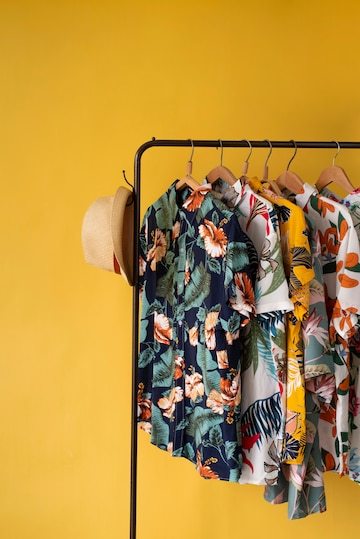
Pearl Global: Leading the Way in Garment Stitching Excellence
"Pearl Global leads the industry with our garment stitching factory, revolutionizing fashion creation globally. Committed to empowerment and environmental preservation, we foster a circular economy for a sustainable future."
#garment stitching factory#clothing supplier#apparel manufacturers in india#sustainable clothing manufacturers india
0 notes
Text
Old Internet Fridays #11: Fashion's Unseen Stories

Transform Trade Unseen Stories Project
What’s this?
What’s this website?
A UK based advocacy organization for better trade, that prioritizes workers and environmental sustainability. Originally known as Traidcraft Exchange, it split off from Traidcraft Plc to focus entirely on advocacy.
The "unseen stories" project is a 2023 project about textile homeworkers in Tirupur, Tamil Nadu, India. They were trained on photography and given nice cameras to document their own lives to raise awareness about homeworkers and their roles in the garment industry.
Okay, how did you find it?
Looking mainly for information about textile industry imports and fast fashion. I came from DuckDuckGo trying to find out where a lot of clothing manufacturing happens. This article from the BBC prompted me to research Bangladesh, which led me to this article, which then led me to the excellent but dense report on conditions post early COVID-19 and unfair practices from buyers, from Transform Trade. It's a bit too much to be the main topic of a post in this series, but here's a highlight of statistics that made me go "mmmm":

How's it doing on Internet Archive?

Kind of flabbergasted I got the first save, ngl! I'm not sure if this is because the stories were added recently or what, but happy to be a part of it.
What delighted you the most?
Okay, "delight" is a strong word-- this one was a thinky topic and no mistake. Regulars on my blog might know from the #math skirt tag that I'm making my first garment, and as a result, I'm thinking a lot of the clear and absolutely fucking absurd undervaluing of garment-making labour. Skimming that report netted me the knowledge that the minimum wage for textile-workers is $2.50 USD in Bangladesh. This is less than half of the urban living wage cited by this study, if you're wondering (and that's already hedging for a modest family).
The delightful part is how clearly the homeworkers are proud of what they do, and happy to be the ones with their hands on the camera. I liked that there was clearly enough freedom left to the individual artists to allow for pictures like this, literal time to smell the roses (from K. Selvrani):
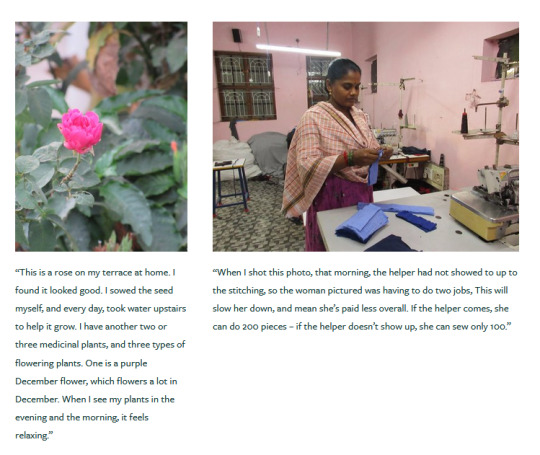
Thanks for reading this far if you got here. I truly hope in my lifetime that textile-production and the way that garments are created, compensated, purchased, repaired and cherished undergoes major changes (fast fashion die challenge). I hope for the return of a certain amount of everyday savvy for basic repairs, and respect for the good work a local tailor can do for you. I hope every corner in the world can afford the time or is given the resources to have clothing that they cherish and can take care of. I have a lot of hopes, you see. <3
25 notes
·
View notes
Link
0 notes
Text
4 Reasons Why Sustainable Fashion Matters
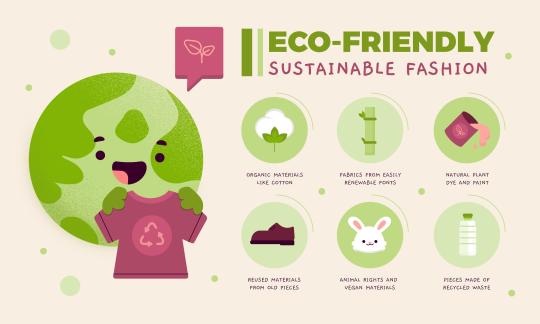
Implementing sustainable fashion industry practices is a growing concern as assessed by the UN’s COP26 summit. We still have a long way to curb environmental encroachment in the name of unsustainable fashion practices.
Thankfully, given the growing awareness, many people are becoming conscious about sustainable practices in the fashion industry and why these are a top priority.
Popularize Eco-Friendly Fashion
As eco-friendly fashion becomes the primary alternative, slow fashion is gaining precedence. Slow fashion allows more designs to reach the market and become exclusively available. The pre-order process ensures sustainable resources are used to produce high-quality pieces.
Businesses normalize sustainable clothing production and sourcing methods as diverse eco-friendly fashion becomes the norm.
Reduce Poaching
Unfortunately, poaching is still very much in play across the globe. Besides the legally slaughtered animals, there is a threat to exotic and near-extinct wildlife due to the fashion industry.
Close to extinction species like the Sumatran Tiger, American Alligator, and many others still suffer from poaching activities. The dwindling numbers of these animals is a wake-up call for the fashion aficionados, who need to take notice and raise their voice against this cruelty.
Rather than validating original leather, fur, and wool, it is much more beneficial for the fauna to transition to human-made fibers, including bamboo plant fibers, recycled materials, and other viable alternatives.
Subsequent Waste Reduction
As sustainable clothing brands gain prominence, so is the upward trend in waste reduction. It’s no secret that sustainable textile manufacturing units rely on eco-friendly, recycled resources to do their bidding.
As sustainable clothing lasts longer due to a lack of chemical processing and lasting fibers, you must buy less. Resultantly, the number of clothes produced and trashed every year will also reduce.
Reduce Environmental Harm
Fast fashion has left the planet high-and-dry with a massive carbon footprint. Solid landfill, water consumption, toxic waste, pesticides, and insecticides used from unsustainable fiber production- all of it contribute to planetary harm.
These practices are also harmful to the workers’ health and well-being in these industries. Sustainable fashion is synonymous with fair trade and humanely safe industrial practices.
Promote Fair Trade
The fast fashion industry can mass-produce and keep prices low. All this is possible, since most of the workforce is based in third-world countries, with cheap labour availability. Child labour, which is illegal and cheap in developing nations, is synonymous with fast fashion.
Sustainable Fashion Clothing
By consuming sustainable clothing, you help organic fashion brands stay in business. In turn, they can employ workers in safe and healthy working conditions. Sustainable brands are also certified ethical and do not employ children.
#Fashion#sustainable fashion#sustainable fabrics#sustainable clothing#clothing manufacturers#clothing manufacturers in india
1 note
·
View note
Text
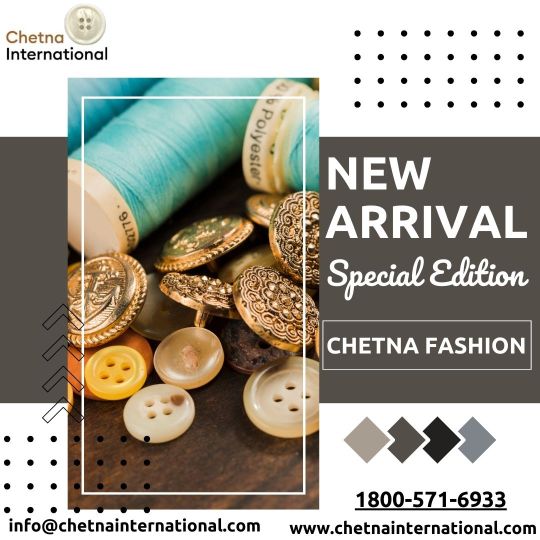
Best Button manufacturers in Delhi
The buttons wholesale market, offering an extensive range of buttons to cater to various requirements. They have a variety of buttons, from traditional styles to contemporary decorations, to fit different kinds of clothes and personal style preferences.
#button manufacturers in india#button suppliers in india#button manufacturing company#button manufacturing companies in india#Chetna international#buttons manufacturers#clothing buttons manufacturers#button manufacturers in delhi#clothing buttons manufacturer#sustainable buttons#button company#button supplier in delhi#shirt button wholesale suppliers in delhi#jeans button manufacturer in India#wholesale shirt buttons
0 notes
Text
Green Living Made Easy: Eco Shopping Tips
Live a Greener Life: Sustainable Shopping and Living Tips with Brandfinity
Brandfinity, a leading branding and marketing agency in India, is committed to promoting eco-conscious practices. In line with this mission, we present these valuable tips to help you make sustainable choices in your everyday shopping and living:
Embrace Sustainable Materials for Clothing and Home Goods:
Opt for eco-friendly options: Look for clothing and home goods made from organic cotton, hemp, or bamboo. These materials often require less water and fewer chemicals compared to conventional options.
Reduce waste, support circularity: Choose products made from recycled or upcycled materials. This not only minimizes waste but also promotes a circular economy where resources are reused.
Support Local and Organic Produce:
Reduce your carbon footprint: Opt for locally grown fruits and vegetables. This not only supports local farmers but also reduces the environmental impact of transportation.
Prioritize health and a healthy planet: Choose organic produce to avoid harmful pesticides and synthetic fertilizers that can negatively affect your health and the environment. Organic farming practices promote soil health, biodiversity, and water conservation.
Minimize Waste with Reusable Bags and Containers:
Ditch the plastic: Invest in reusable shopping bags made from durable materials like canvas or recycled materials. This eliminates the need for single-use plastic bags, significantly reducing waste.
Embrace reusables for bulk items: Utilize reusable containers when buying bulk items like grains, nuts, and spices. This eliminates the need for single-use packaging, further minimizing waste. Remember to wash and sanitize your reusable bags and containers regularly.
Champion Eco-Friendly Brands and Products:
Look for certifications: Support brands and products with certifications that showcase their environmental commitment, such as organic, fair trade, or cruelty-free labels. These certifications ensure adherence to specific standards and minimal harm to the environment and workers.
Sustainable practices matter: Choose brands that prioritize sustainability throughout their supply chain, from sourcing materials to manufacturing and packaging. By supporting these brands, you encourage more sustainable business practices with your purchasing power.
Embrace Sustainable Fashion with Second-Hand and Thrift Shopping:
Reduce demand, extend lifespans: Consider second-hand and thrift stores for unique and stylish clothing at affordable prices. This reduces the demand for new clothing production and gives pre-loved items a second chance.
Promote a circular fashion economy: By choosing second-hand fashion, you contribute to a circular economy by extending the lifespan of clothing and minimizing textile waste. Don't forget to donate or sell your own unwanted clothing to keep the cycle going!
Live a greener life, one sustainable choice at a time!
Partner with Brandfinity to craft an eco-conscious brand identity and marketing strategy that resonates with your sustainability goals. Visit us at https://brandfinity.ch/en/ to learn more.
#business#wix#logo design#ui ux design#cms development services#marketing#web developer#website#e commerce#education
3 notes
·
View notes